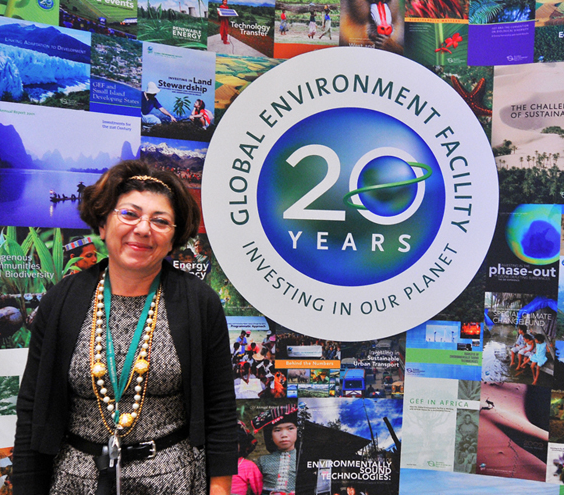The 41st Global Environment Facility (GEF) Council Meeting approved a series of projects related to energy efficiency, the conservation of carbon stocks, and renewable energy.
A parallel meeting of the Special Climate Change Fund (SCCF) and Least Developed Countries Fund (LDCF) also approved several adaptation projects.
 10 November 2011: The Global Environment Facility (GEF) Council, at its 41st Council Meeting, approved decisions on the administration of the GEF as well as a work programme of 40 stand-alone projects and nine programmatic approaches amounting to US$516.40 million, including several climate change and energy-related projects. Projects were also approved within the Special Climate Change Fund (SCCF) and Least Developed Countries Fund (LDCF).
10 November 2011: The Global Environment Facility (GEF) Council, at its 41st Council Meeting, approved decisions on the administration of the GEF as well as a work programme of 40 stand-alone projects and nine programmatic approaches amounting to US$516.40 million, including several climate change and energy-related projects. Projects were also approved within the Special Climate Change Fund (SCCF) and Least Developed Countries Fund (LDCF).
The Council also approved an innovative International Waters initiative, the “Blue Forests” project, which will develop methodologies to estimate the carbon sequestration capacity of coastal habitats like mangroves, sea grass beds, coral reefs, and salt marshes and demonstrate their economic value.
Several projects were also approved on renewable energy, including a solar power project in Colombia, Kenya and Swaziland that will seek to develop, test and transfer SolarChill technology (to be implemented by UNEP), and another that will develop sustainable renewable energy power generation in Bangladesh (to be implemented by UNDP).
Regarding energy efficiency: a project in China will promote energy efficiency and emission reductions in Hebei (to be implemented by the Asian Development Bank); a project in Liberia will promote efficient lighting (to be implemented by the World Bank); and a project in Suriname will work on renewable energy, energy efficiency and electrification (to be implemented by the Inter-American Development Bank). The Lake Chad Basin countries will also receive a grant to work on conservation and sustainable use of natural resources and energy efficiency, and a sustainable transport and urban development project will be implemented in Bangladesh, China and Mongolia.
Regarding adaptation, FAO will implement a project to reduce land degradation in fragile micro-watersheds in El Salvador, and a partnership to implement the Arctic Agenda 2020 for environmental management under a rapidly changing climate will receive a US$25 million grant.
On the conservation of carbon stocks, a project in Ukraine will establish a protected area in the Chernobyl Exclusion Zone, and finally, Uzbekistan will also work on agriculture and climate mitigation.
A global project to fund the UNFCCC national communications was also approved for Afghanistan, Angola, Burundi, Central African Republic, Congo, Colombia, Djibouti, Guinea, Guinea-Bissau, Guyana, Haiti, Cambodia, St. Lucia, Liberia, Lesotho, Malawi, Mozambique, Nepal, Palau, Sierra Leone, Swaziland, Chad, Zambia.
During the 11th meeting of the Council for the Least Developed Countries Fund (LDCF) and Special Climate Change Fund (SCCF), which took place on 10 November in the morning, Council members approved the joint work program and the Monitoring and Evaluation Policy. Projects approved with funds from the LDCF and SCCF include the following: a project to increase climate resilience through conservation agriculture in Moldova, a project on climate resilience coastal protection and management in India, an adaptation project in the water sector in Colombia, a project on strengthening the resilience to climate risks of post conflict populations in Sri Lanka, and a project in Honduras to strengthen competitiveness and sustainable rural development. [IISD RS Report of the Meeting, GEF Council Summary of the Chairs, LDCF/SCCF Summary of the Chairs].